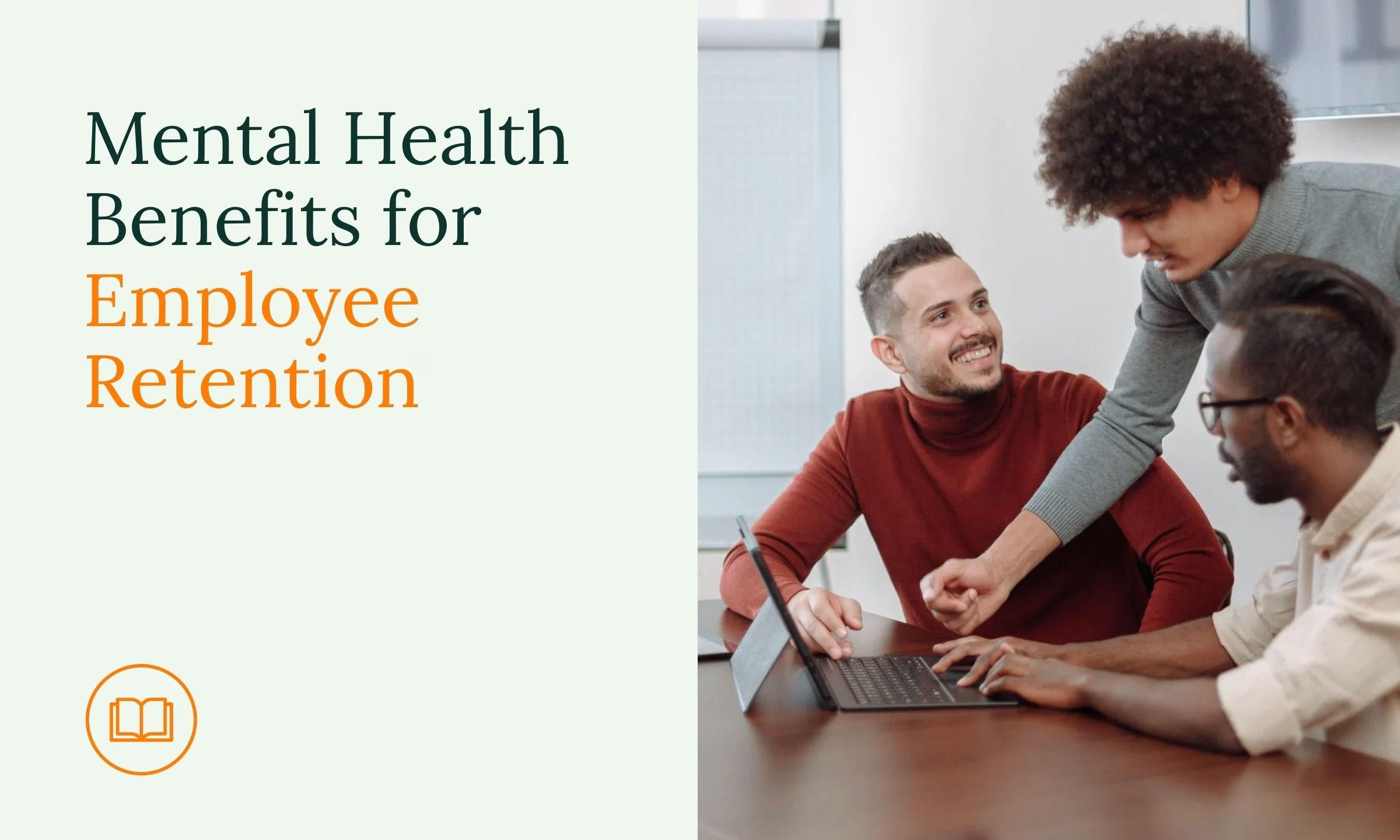Imagine this: Every day, Ted comes to work with his untreated broken leg. “Um, this actually really hurts,” he says, limping up the stairs. “Can anyone help me?” Stop whining, Ted! We need you to finish that report, please. And could you go a little faster on the stairs? It’s probably not going to be a huge surprise when Ted quits. Employee retention is all but impossible when we don’t take care of our people.
But at the same time, many companies expect their employees to just “push through” mental health issues. It’s just as important that we take care of our mental health as our physical health. In this article, we’ll explore which benefits can help prioritize employee retention and ensure that our team is always coming to work at their best.

Mental health is a crucial aspect of employee well-being. Companies are increasingly recognizing the importance of supporting their employees’ mental health not only for ethical reasons but also for the tangible benefits it brings to the organization. One such benefit is the positive impact on employee retention. In this blog post, we’ll explore how investing in mental health benefits significantly boosts employee retention rates and ultimately enhances overall productivity and success.
Understanding the Link between Mental Health and Employee Retention
Employee retention refers to the ability of an organization to keep its employees over a specified period. High turnover rates are detrimental for companies, leading to increased recruitment costs, loss of institutional knowledge, decreased morale among remaining employees, and disruptions in productivity. Several factors influence employee retention, including job satisfaction, work-life balance, career advancement opportunities, and workplace culture. One often overlooked aspect is mental health.
Research consistently demonstrates a strong correlation between mental health and job satisfaction. Employees who feel supported in managing their mental well-being are more likely to be engaged, motivated, and loyal to their employers.
Conversely, those experiencing high levels of stress, anxiety, or depression may struggle to perform optimally and may ultimately seek opportunities elsewhere. Therefore, by prioritizing mental health initiatives, organizations can foster a positive work environment that encourages employee commitment and longevity.
The Role of Mental Health Benefits
Mental health benefits encompass a range of programs, policies, and resources designed to support employees’ psychological well-being. These may include access to counseling services, stress management workshops, mindfulness training, employee assistance programs (EAPs), flexible work arrangements, and comprehensive healthcare coverage that includes mental health services.
By offering such benefits, organizations signal their commitment to prioritizing employee wellness and creating a supportive culture that values mental health as much as physical health.
And a good mental health benefit has a huge impact on employee retention, decreasing turnover by as much as 60%.
But how does mental health support make such an impact?
Improved Employee Morale and Engagement
One of the primary ways mental health benefits contribute to employee retention is by improving morale and engagement. When employees feel that their mental well-being is valued and supported by their employer, they are more likely to feel satisfied and engaged in their work.
This sense of appreciation fosters a deeper connection to the organization, making employees less inclined to seek employment elsewhere.
Reduced Stress and Burnout
Chronic stress and burnout are significant contributors to employee turnover. However, by providing resources to help employees manage stress and maintain a healthy work-life balance, organizations can mitigate these risks. Mental health benefits such as counseling, stress management programs, and flexible scheduling options empower employees to prioritize self-care and prevent burnout, ultimately leading to higher retention rates.
Enhanced Productivity and Performance
A mentally healthy workforce is a more productive workforce. When employees’ mental health needs are met, they are better equipped to focus, collaborate, and innovate. Studies have shown that employees who receive adequate support for their mental well-being are more resilient in the face of challenges and demonstrate higher levels of creativity and problem-solving skills.
By investing in mental health benefits, organizations can unlock their employees’ full potential, leading to improved performance and higher retention rates.
Good for Well-Being, Smart for Strategy
Investing in mental health benefits is not only the right thing to do from a moral standpoint but also a strategic decision that can significantly impact employee retention and organizational success. By prioritizing employee well-being and providing the necessary support and resources to manage mental health challenges, organizations can create a positive work environment where employees feel valued, engaged, and motivated to stay.
Ultimately, the benefits of such initiatives extend far beyond employee retention, contributing to improved productivity, innovation, and overall business performance.
As the workforce continues to prioritize mental health, companies that prioritize mental health benefits will undoubtedly gain a competitive edge in attracting and retaining top talent.
Ready for your customized mental health support plan? Get in touch today.







